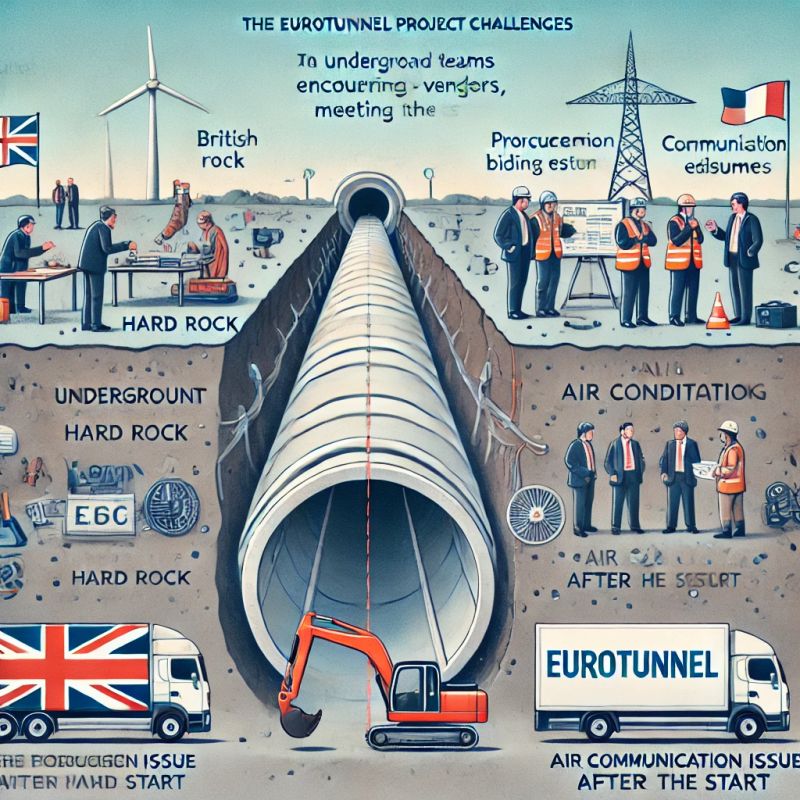The Channel Tunnel is an undersea rail tunnel that links Folkestone in the UK to Pas de Calais, near Calais, in France. It carries high-speed Eurostar trains, and in recent years, it has transported over 22 million passengers annually, with freight surpassing 20 million tonnes.
In 1988, the Channel project began with a budget of £2.6B and an expected timeline of 5 years. However, it wasn’t completed until 1994, costing £4.6B—80% over budget and taking 20% longer than planned.
This is a classic case where uncontrolled changes in project scope occur due to unclear definitions and planning gaps.
Key issues in the Channel project:
–Lack of historical data: Without precedent, crucial requirements like air conditioning were missed in the initial design.
–Risk management: Unexpected underground conditions caused delays, highlighting the need for better risk identification and response planning.
–Communication gaps: British and French teams tunneling from opposite sides faced communication challenges.
-Procurement issues: Optimistic bids led to the “winner’s curse,” where contractors couldn’t deliver on time or budget.
Would an Agile and Iterative approach have mitigated these issues?

